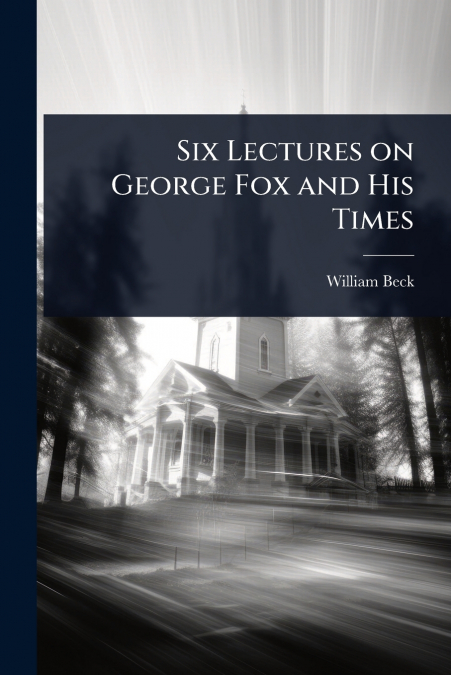
William Beck
Six Lectures on George Fox and His Times, by William Beck, offers a detailed exploration of the life and influence of George Fox, the founder of the Religious Society of Friends (Quakers). Originally delivered as lectures, this work provides a comprehensive overview of Fox’s spiritual journey, his theological insights, and the historical context in which he lived and preached. Beck delves into Fox’s early life, his spiritual awakening, and the development of his unique religious philosophy, emphasizing Fox’s commitment to inner light and direct experience of God. The lectures also explore the broader social and political landscape of 17th-century England, examining how these factors influenced the growth and development of the Quaker movement. Beck highlights the challenges and persecutions faced by Fox and his followers, as well as their enduring impact on religious and social thought. This book is valuable for anyone interested in the history of Quakerism, the life of George Fox, or the religious and social history of 17th-century England.This work has been selected by scholars as being culturally important, and is part of the knowledge base of civilization as we know it. This work was reproduced from the original artifact, and remains as true to the original work as possible. Therefore, you will see the original copyright references, library stamps (as most of these works have been housed in our most important libraries around the world), and other notations in the work.This work is in the public domain in the United States of America, and possibly other nations. Within the United States, you may freely copy and distribute this work, as no entity (individual or corporate) has a copyright on the body of the work.As a reproduction of a historical artifact, this work may contain missing or blurred pages, poor pictures, errant marks, etc. Scholars believe, and we concur, that this work is important enough to be preserved, reproduced, and made generally available to the public. We appreciate your support of the preservation process, and thank you for being an important part of keeping this knowledge alive and relevant.